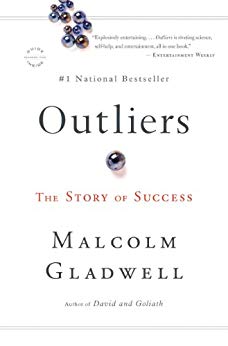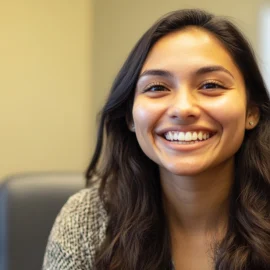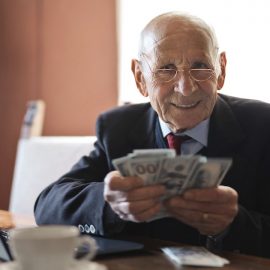

This article is an excerpt from the Shortform summary of "Outliers" by Malcolm Gladwell. Shortform has the world's best summaries of books you should be reading.
Like this article? Sign up for a free trial here .
It may seem obvious that we need to work hard to succeed, but too often we attribute success solely to talent and forget that the hours we put in matter just as much as, if not significantly more than, the natural gifts we start with.
You need a certain level of natural talent to get your foot in the door in a particular field. But after you are “good enough,” practice becomes the determining factor in how successful you are. According to Malcolm Gladwell, 10,000 hours of practice is how long it takes to become an expert in something.
How long is 10,000 hours? It’s roughly 5 hours of full time work at 2,000 hours per year. If you do it as a hobby at 10 hours a week, it will take you 20 years to get to expert level. 10,000 hours of practice is a long time!
The Opportunity of Time (And Timing)
What’s not so obvious is that having the time to have 10,000 hours of practice is a luxury. We tend to think of practice as an equalizer—anyone who is a hard worker can succeed. But in reality, only a privileged few have the time necessary to master a skill set.
Some studies show that the most masterful individuals in their fields have practiced their craft for at least 10,000 hours. Even The Beatles, who seemed to come out of nowhere, were seasoned musicians, having logged their 10,000 hours at a strip club in Hamburg, Germany. By 1964, they had played an estimated 1,200 times. (Few bands play as many shows in their entire careers.) Their thousands of practice hours in Germany were a key to their success.
(Shortform note: Gladwell has been criticized for focusing too much on the number of practice hours rather than their quality. As critics, and even the author of the 10,000-hour study, point out, how you practice is even more important than how much you practice. Gladwell has since clarified that he wasn’t suggesting that 10,000 hours of practice was a magic number. His point was that you need to practice a lot to reach mastery of a skill.)
You need to be in pretty extraordinary circumstances (with the extraordinary opportunities they provide) to accumulate 10,000 hours of focused practice as a young person. These circumstances often emerge from two external factors:
10,000 Hours Requirement 1: Privilege
Carving out 10,000 hours of practice in childhood requires the support of the adults in your life.
It helps if your family has money. You can’t devote yourself to the full-time practice of a craft while also working a part-time job to pay for it. Going to school may also eat into your practice time. Wealthier families can afford to homeschool a promising child or arrange for special accommodations that allow for extended practice hours. Money buys time, and time is necessary for 10,000 hours of practice.
10,000 Hours Requirement 2: Luck of Timing
Just as your birthday affects your success in school or hockey, your birth year, in relation to historical events, may provide unique opportunities. Those opportunities may allow you 10,000 hours of practice that wouldn’t otherwise be available to you.
For example, of the 75 richest people in history, fourteen are Americans born in the 1830’s. This is astonishing. From Cleopatra to the present, 20% of the wealthiest individuals come from the same country and the same generation. Did something about their birth year give them an advantage?
In the 1860’s and 1870’s, industrialism was ramping up, railroads were being built, and Wall Street was emerging. Individuals born in the 1830’s were in a prime position to take advantage of these ripe entrepreneurial opportunities. If you were born in the 1840s, you were too young to benefit from these opportunities. If you were born in the 1820s, you were too old to radically shift your mindset to understand the new economy. If you were born in the 1830s, you were lucky: You had both the opportunity to take advantage of the transforming economy and the 10,000 hours of practice to devote to finding your place in it.
Similarly, an inordinate number of successful computer programmers were born between 1952 and 1958.
- Bill Gates: founder of Microsoft, born 1955
- Paul Allen: co-founder of Microsoft, born 1953
- Steve Ballmer: third richest man at Microsoft, born 1956
- Steve Jobs: co-founder of Apple Computer, born 1955
- Eric Schmidt: Chief executive officer of Google and founder of Novell software firm, born 1955
These individuals came of age during the dawn of the personal computer in 1975.
Individuals born before the “sweet spot” of the 1950’s were too old and set in their ways to be willing to take risks on new ventures. Individuals born after missed their chance to get in at the start of a revolution.
Let’s look at two computer programmers whose life stories show how good timing combined with hours of practice results in success.
10,000 Hours of Practice Example: Bill Gates
An outlier born in the 1950s, Bill Gates also had extraordinary opportunities that provided him with the computer programming experience necessary to found Microsoft after dropping out of Harvard.
His Privilege Afforded Him Opportunities
Opportunity #1: Gates was born into a family that was able to afford to send him to Lakeside, a private school wealthy enough to purchase a computer terminal. This was remarkable in 1968, when most colleges didn’t have access to computers. The mothers of Lakeside students repeatedly raised funds to pay the computer fees.
Gates was only in the 8th grade when he started accumulating his 10,000 hours of programming practice.
He Was in the Right Place at the Right Time
Opportunity #2: A local company offered Gates and his computer-programming friends free computer time in exchange for testing the company’s software. A rare chance to get 10,000 hours of practice.
Opportunity #3: Gates happened to live within walking distance of the University of Washington, where his friend found access to a computer which was free from 3 to 6 in the morning. Gates would sneak out after his parents were asleep to steal computer time at the university to get 10,000 hours of practice.
Opportunity #4: His senior year of high school, Gates convinced his teachers to let him work on a computer programming project in southern Washington as an “independent study project.” He got the job because the technology company needed a specialist in a particular kind of software, and Gates had thousands of hours of experience with it. At the time, the software was so new that specialists were hard to find.
All of these extraordinary opportunities allowed Gates the time to practice and hone his skills. By the time he dropped out of Harvard, Gates had been programming nonstop for seven years.
His family’s wealth allowed Gates to go to a school that could afford a computer. The advantages accumulated from there. These advantages allowed Gates and his friends an unprecedented fraction of 10,000 hours of practice hours working with computers at a time when having programming skills was a significant predictor of success.
———End of Preview———

Like what you just read? Read the rest of the world's best summary of "Outliers" at Shortform . Learn the book's critical concepts in 20 minutes or less .
Here's what you'll find in our full Outliers summary :
- What makes some people outliers, and most others not
- Why some genius outliers end up failing in life
- Why Asians are good at math, and other curiosities of culture







I recently wrote an article on how we got all the time measurements messed up. You can make your own informed opinion.
I have talked about ..10000 hours as well